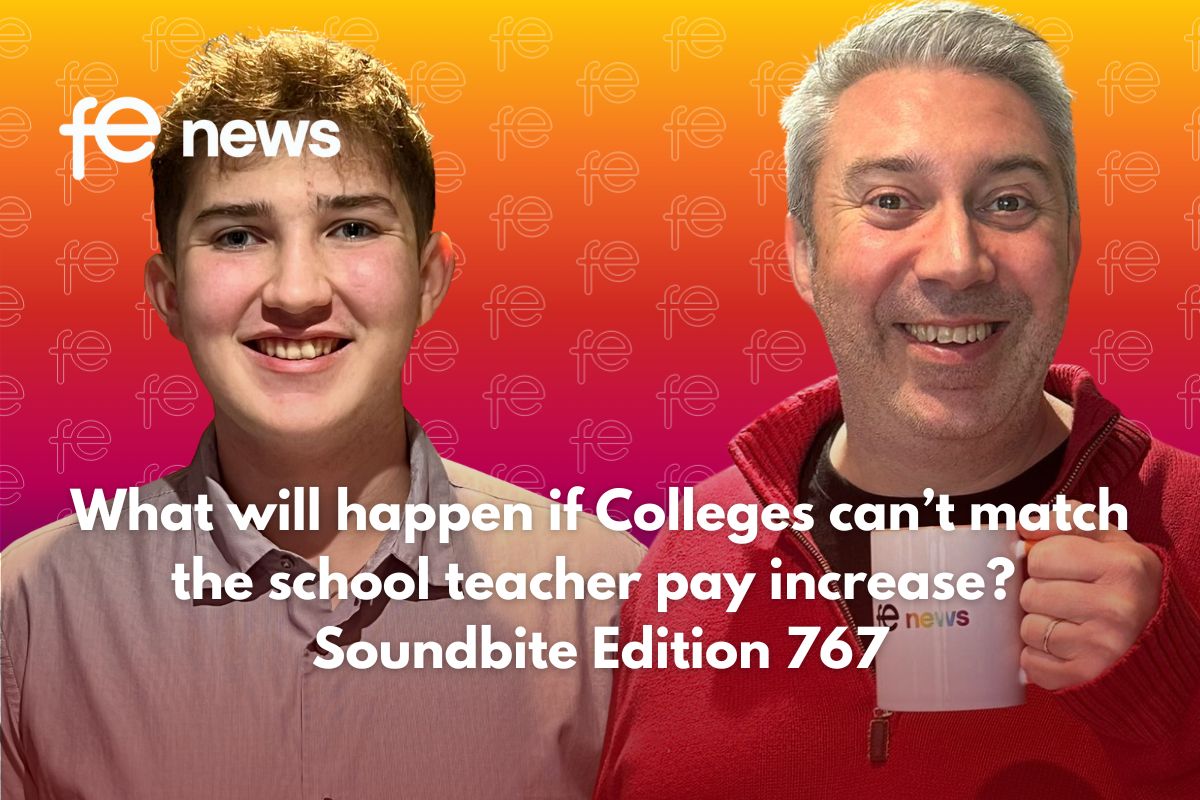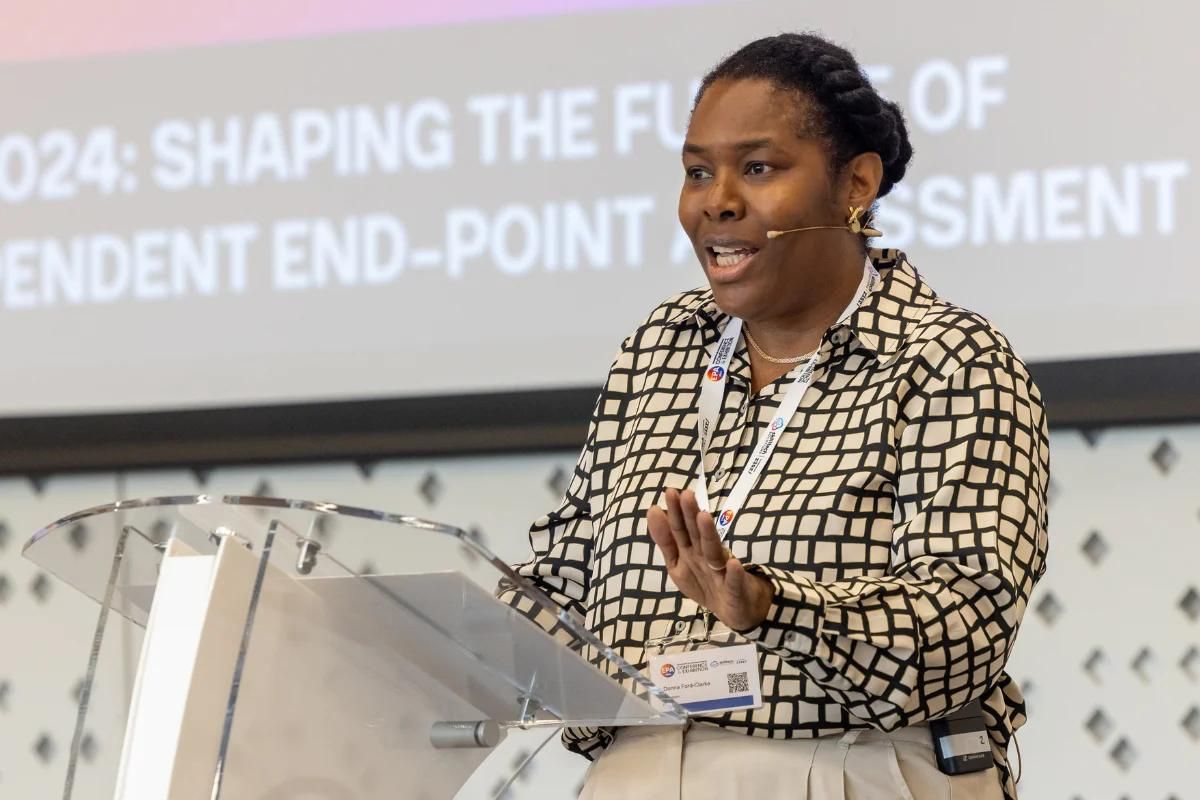Leading Global Voices Urge International Community to Close Digital Access, Skills and Online Learning Gaps for Girls

#BuildingTheBandwidth – Jamie Frost Joins Leading Global Voices in Letter Urging International Community to Close Digital Access, Skills and Online Learning Gaps for Girls in Age of COVID-19
The UK’s Jamie Frost, winner of the Global Teacher Prize 2020 COVID Hero Award and a top 10 finalist of the Global Teacher Prize 2020, joins leaders from across the public, private and philanthropic sectors who have underlined their commitment to girls’ education and accelerating girls’ digital access, digital skills and participation in online learning in a joint letter and called on the international community to step up efforts.
The open letter, which calls for action by the international community to ensure girls have equal access to the technology and digital skills training they need to learn, and to protect and prioritise domestic and international financing for girls’ education amid COVID-19, follows the recent Building the Bandwidth Summit convened by the Varkey Foundation, UNESCO, and CJ Cultural Foundation.
The letter, whose signatories include Henrietta Fore, Executive Director of UNICEF, Stefania Giannini, Assistant Director-General for Education at UNESCO, and Yasmine Sherif, Director of Education Cannot Wait, comes in response to growing concerns that after COVID-19, 11 million girls may not return to school, while the overnight shift to online learning has put girls at a disadvantage due to disparities in both their access to technology and the digital skills needed to use it. Meanwhile, concerns have been raised about girls’ safety online.
The letter’s signatories fear these inequalities and risks to girls’ education are likely to be compounded by shrinking budgets due to the pandemic’s economic devastation.
This letter follows the Building the Bandwidth Summit convened by the Varkey Foundation, UNESCO, and CJ Cultural Foundation.
Jamie Frost, Global Teacher Prize 2020 COVID Hero Award winner and top 10 finalist of the Global Teacher Prize 2020, said:
“Online learning has, for many students in many countries around the world, prevented a health crisis becoming an education crisis. But we have to ensure no students are left behind, especially girls who often find themselves disadvantaged by their unequal access to technology and digital skills. If we’re to prevent COVID-19 leaving a generation of girls behind, world leaders must make their education a priority.”
Stefania Giannini, Assistant Director-General at UNESCO said:
“Despite the best efforts to introduce remote learning during this pandemic, 43% (706 million) of the world’s learners lack internet access and in sub-Saharan Africa 82% of learners lack internet access. Sadly, millions of girls may never return to the classroom.
“At the same time, in poorer contexts, many girls and young women lack access to the technology and digital skills that are now so essential to learning, and they continue to miss out on STEM education. The shift to online learning also presents risks for girls with over half of young women and girls globally reporting they have experienced online abuse.
“Governments must learn the lessons from this pandemic and act decisively to ensure all children receive a quality and safe education in this age of COVID-19 and beyond.”
Heekyung Jo Min, Executive Vice-President of CJ CheilJedang, said:
“Unless we nurture girls’ talents, encourage their curiosity and inspire their creativity, we will miss out on the potential of half of humanity. We cannot allow COVID-19 to deprive young women of the better future that, if the world acts now, is within their grasp.”
Sunny Varkey, Founder of the Global Teacher Prize, said:
“COVID-19 threatens to turn the clock back decades on girls’ education. We know that technology can play an enormous role in bridging the education divide, but only if it reaches every child in every part of the world irrespective of their gender.
“Most importantly, it is vital that we put the teacher voice at the heart of our mission. The combined knowledge and experience of teachers from the front line will help the international community answer crucial questions so we can provide inclusive learning opportunities for all children.”
The letter states:
Among the many tragedies the COVID-19 pandemic has brought upon the world is its threat to reverse decades of hard-won progress on girls’ education. Before COVID-19, global efforts to get more girls into the classroom had seen 180 million more girls enrol in primary and secondary education since 1995. But now, UNESCO estimates that 11 million girls may not return to school after the pandemic.
The overnight shift to online learning has put girls at a disadvantage in many contexts, due to disparities in both their access to technology and the digital skills needed to use it. More men than women are using the internet in all regions of the world, except for the Americas. In low- and middle-income countries, according to GSMA, women are 7% less likely than men to own a mobile phone and 15% less likely to use mobile internet. Similarly, in many countries, the gender digital skills gap is apparent, from simpler tasks such as using apps on a mobile phone, to advanced skills like coding.
What’s more, the shift to online learning has raised concerns about girls’ safety on the internet. According to the World Wide Web Foundation, 52% of young women and girls around the world report having experienced online abuse, including threatening messages, sexual harassment and the sharing of private images without consent. As a result, many parents and caregivers are limiting girls’ time online.
These inequalities and risks to girls’ education are likely to be compounded by shrinking domestic and international financing budgets in the wake of the pandemic’s economic devastation. UNESCO and the World Bank estimate that external aid for education may fall by $2 billion from 2020 levels.
That is why, following the Building the Bandwidth Summit convened by the Varkey Foundation, UNESCO, and CJ Cultural Foundation, we commit to expanding girls’ access to online learning and digital skills, and call for action by the international community to:
- Protect and prioritise domestic and international financing for girls’ education post-COVID-19 to safeguard progress, particularly in the poorest countries;
- Ensure girls have equal access to the technology and resources they need to learn effectively, and ensure safe, empowering spaces for learning – including online;
- Build digital skills through gender bias-free curricula and teacher capacity to engage all learners equally, addressing unconscious bias in teaching practices;
- Develop and implement action plans that support girls’ pursuit of science, technology, engineering and mathematics (STEM) subjects and careers; and
- Catalyse cooperation between governments, the private sector, civil society, development partners, academia, families and girls to close the gender digital divide.
Dr Márcia Balisciano MBE, Head of Corporate Responsibility, RELX
Ms Irina Bokova, Global Ambassador, Education Cannot Wait & Director-General, UNESCO (2009-2017)
Ms Kemly Camacho, President & General Coordinator, Sulá Batsú
Mr Ranjitsinh Disale, Global Teacher Prize 2020 Winner
Mr Rubens Ferronato, Global Teacher Prize 2018 Top 50 Finalist
Mr Tom Fletcher CMG, Principal, Hertford College, University of Oxford
Ms Henrietta H Fore, Executive Director, UNICEF
Ms Monika Froehler, CEO, Ban Ki-moon Centre for Global Citizens
Dr Jamie Frost, Global Teacher Prize 2020 Top 10 Finalist
Ms Stefania Giannini, Assistant Director-General for Education, UNESCO
Mr Krishnan Gopi, Chief Disruption Officer, GEMS Education
Mr Samuel Isaiah, Global Teacher Prize 2020 Top 10 Finalist
Ms Lindiwe Matlali, Founder and CEO, Africa Teen Geeks
Mr Carlo Mazzone, Global Teacher Prize 2020 Top 10 Finalist
Ms Heekyung Jo Min, Executive Vice President, CJ CheilJedang
H.E. Dr Dipu Moni MP, Minister of Education of Bangladesh
Ms Yasmine Sherif, Director, Education Cannot Wait
Mr Peter Tabichi, Global Teacher Prize 2019 Winner
Mdm Nguyen Thi Phuong Thao, Chairwoman, Sovico Group
Mr Sunny Varkey, Founder, Varkey Foundation








Responses